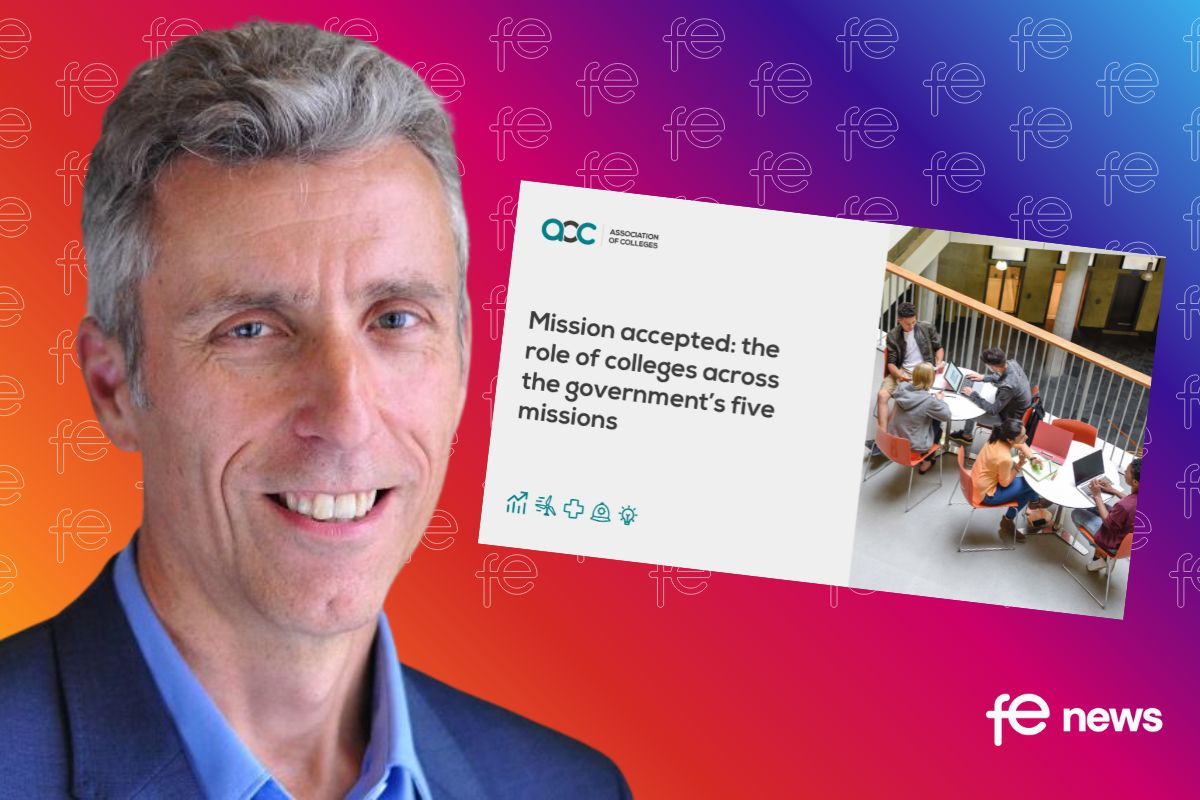Rob Wye Talks Exclusively to FE News on Drives for Reducing

The publication of the new Further Education White Paper has seen responses from across the sector, each welcoming the publication on their own terms whilst often expressing reservations concerning a number of areas.
One such response, from the Association of Colleges (AoC), welcomed the commitment to further expansion of education and training provision and the place that FE obviously occupies at the forefront of the skills agenda. They called for a number of more radical steps, including addressing what they described as the “burgeoning bureaucracy” costs for the colleges that they place at £500 million.
This statement, which indicates that the AoC are looking for further cuts in bureaucracy, has met with a swift response from the Learning and Skills Council (LSC), the funding body responsible for distributing the FE budget. The Director of Strategy and Communications at the LSC, Rob Wye, took issue with the use of the word “burgeoning” in the press release, and stated that the drive for reduced bureaucratic oversight remains right on course.
The Right Direction
In his reaction to the White Paper, Dr. John Brennan referred to the bureaucratic oversight issue, saying: “Government should trust colleges, as one of the most successful and high quality parts of the public services, to respond strategically to the needs of their employers and their communities, and to deliver results without excessive ““ and potentially increasing ““ micromanagement, regulation and bureaucracy”¦Government should be moving urgently to shift much of the £500 million currently spent on bureaucracy onto the front line.”
Speaking to FE News earlier today, Mr. Wye objected to the use of the term “burgeoning” on the part of the AoC. He stated that the LSC are “working hard to reduce bureaucracy” under the aegis of their agenda for change, and that far from growing oversight they are “bearing down on it [reduced bureaucracy].”
Single Gatekeeper
The White Paper does in fact mention the drive for reducing bureaucracy, and the LSC feel that their programme already in place under the agenda for change is heading in the right direction; both through initiatives such as the “single gatekeeper” approach, and through the extensive restructuring that the LSC has undertaken. This sees the LSC set to cut approximately 1,100 posts, with the announcement concerning the new structure set to be released later this week.
The Chair of the Bureaucracy Reduction Group, Caroline Lewis, has also welcomed the White Paper’s stance on reducing the bureaucratic burden, saying: “I am pleased to welcome many of the strong messages in the White Paper to reduce bureaucracy and increase clarity and simplicity within the FE system. The single mechanism or “gatekeeper” for setting standards and data and reporting requirements is particularly welcomed.
“The challenge now is to make some real progress in the area and develop some real action,” she continued. “The Bureaucracy Reduction Group will be considering the White Paper in full and will want to make sure we reflect the commitments in our forthcoming Bureaucracy Reduction Action plan.” Mr. Wye agreed with this welcome for the White Paper’s statement on bureaucracy, stating that this was an “important step forward” and hailing the LSC’s success in “simplifying processes”.
All of us at FE News would like to thank Mr. Wye for taking the time to discuss this with us.
Jethro Marsh
Stay right here to read Rob Wye’s thoughts on the White Paper and the skills agenda exclusively at FE News!











Responses